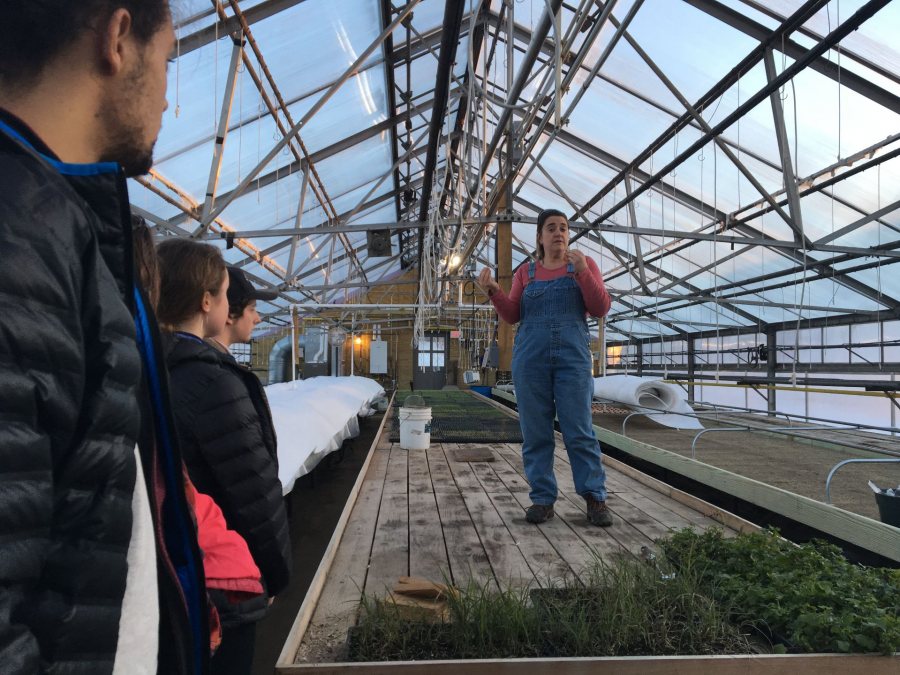Community-Engaged Coursework

Students in Community-Engaged Research in Environmental Studies listen to Whiting Farm Director Kim Finnerty as they prepare for a semester-long feasibility study of a solar panel installation at the farm.
Community-Engaged Courses
At the Harward Center, we are glad to foster opportunities for meaningful and academically rigorous collaborations between a wide range of community partners and faculty and students across the curriculum. In a typical year at Bates, more than a quarter of the faculty include a community-engaged component in their academic courses, and about 50% of students undertake a community-engaged learning project within the context of an academic course. In 2015-2016, more than fifty courses included significant community-engaged learning or research projects involving collaborations with community partners.
There is no one-size-fits all model for community-engaged courses at Bates. Before each semester, Harward Center staff work closely with faculty to determine how their teaching objectives align with the needs of the community and our local partners. We offer support in planning and implementing projects, assessing their impact, and exploring opportunities for sustaining and building on student work with community partners in other courses and programs. In the fall semester of 2016, we will be piloting a structured reflection program in select courses in order to help students navigate the ethical challenges of community-engaged learning.
Most courses offer a combination of community-engaged and traditional academic work, with the specific terms of an assignment varying according to the discipline and the requirements of the course. Community-engaged learning can take the form of a single class project, a group activity, or an individual assignment. Some courses offer students the opportunity to gain experience in education or social justice work by spending 2-3 hours per week tutoring or offering operational support to a non-profit organization. In other cases, students conduct extensive research on an issue of importance to one of our community partners, sharing their results in presentations or reports given to the organization at the end of the semester. You can learn more about the wide range of projects that students have done in community-engaged learning courses in past years in our annual reports.
Community-Engagement General Education Concentrations
Students who wish to make collaboration and research with the community a central element of their studies at Bates should consider the Civic Engagement: Knowledge, Action, and the Public Good General Education Concentration (GEC), which includes community-engaged courses across a wide range of disciplines. Faculty who are offering community-engaged courses are invited to submit their courses for tagging in the course catalog by clicking here. Students with a specific interest in community-engaged work with local public health organizations should consider the option of counting an intensive project in the community towards the Public Health GEC through the co-curricular option.